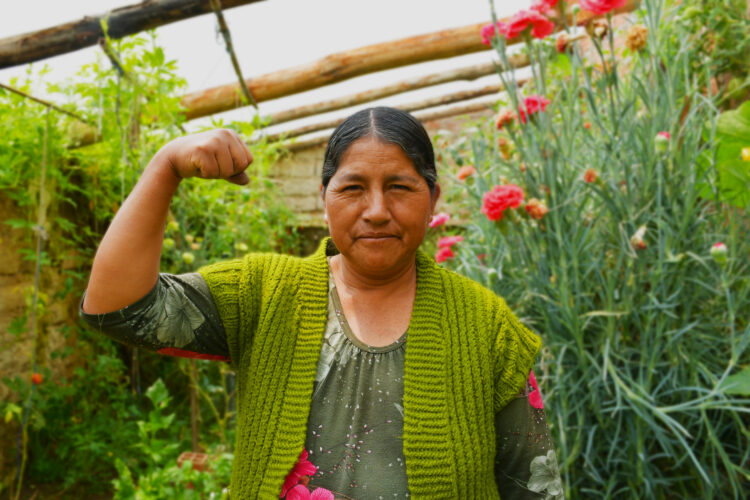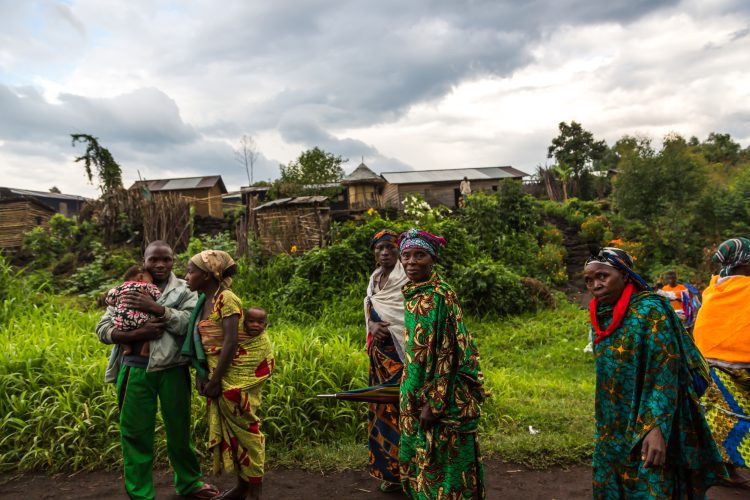Putting local partners in the lead: HelpAge’s journey to true collaboration
A new way of working
Real change happens when those closest to a community’s challenges are the ones leading the solutions. That’s the heart of Partner-Led Programming (PLP).
When local organisations take charge of designing and running programmes, they bring deep knowledge, experience, and long-term commitment to their work. By shifting power to our partners, we’re not just changing how we operate – we’re making development more sustainable, inclusive, and impactful.
In September 2023, HelpAge International launched a bold shift in the way we work: Partner-Led Programming (PLP). This isn’t just about changing policies – it is about transforming how we share power and decision-making with our local partners.
At its heart, PLP is about trust, shared leadership, and elevating local voices. It means our partners take the lead in designing and running programmes, while HelpAge steps into a role that is supportive, convening, and thought-leading. This shift challenges old ways of working, but it also brings exciting opportunities to create a more sustainable and locally driven future.
Building stronger partnerships
The first step in this journey involved open and honest conversations – with our staff and partners. We needed to be clear about what PLP meant, why it mattered, and how we could make it work together.
Many welcomed the change, but it wasn’t always easy. Some staff found it difficult to step back from decision-making, while some partners were hesitant to take full ownership after years of HelpAge leading the way. We quickly realised that this shift wasn’t just about dividing tasks – it was about building stronger, more equal relationships based on trust and accountability.

Shifting resources to local partners
One of the biggest changes in PLP is ensuring that funding reaches local organisations more fairly and transparently. We introduced new tools to make this happen, including:
- Fairer budgeting – A new system to ensure resources are shared more equally between HelpAge and partners.
- More direct funding – Helping partners apply for grants as lead applicants and giving them more control over programme funds.
- Better cost sharing – A new policy ensuring all partners receive 25% of indirect costs to cover essential expenses.
While these steps are making a difference, we know more needs to be done. Donor restrictions often make it difficult to shift resources as fairly as we’d like. True localisation requires the whole sector, including donors, to change the way funding is structured.
Learning from partner feedback
Real change comes from listening. That’s why, in March 2024, we launched our first annual partnership feedback survey, which will take place in 2025 as well. The responses were eye-opening. Partners appreciated the move towards greater collaboration, but they also highlighted areas where we need to do better, such as:
- Clearer role definitions – Making it easier to understand who does what.
- Faster fund transfers – Ensuring financial support reaches partners without unnecessary delays.
- Stronger visibility – Making sure partners are recognised for their work.
- More meaningful support – Moving beyond one-off training to real, long-term mentoring, capacity-strengthening and collaboration.
This feedback isn’t just a report – it’s our roadmap for making PLP even stronger. If we want to truly shift power, we must actively listen, respond, and adapt.
Making partnership processes easier
One major challenge partners face is the heavy administrative burden that comes with working with multiple international organisations. Each requires its own detailed assessments, often repeating the same processes over and over.
To fix this, we introduced the Partner Due Diligence Passporting Policy – a simple but effective change that allows us to accept existing assessments instead of requiring partners to complete them again. This reduces paperwork, saves time, and allows partners to focus on their work rather than bureaucracy.

Tracking progress
To make sure PLP is making a real difference, we’ve built key indicators into our monitoring systems. We’re tracking:
- How much funding goes directly to partners.
- How actively partners participate in decision-making.
- How well we’re supporting partners beyond just funding.
We’re also creating practical tools – guides, case studies, and learning briefs – to help both staff and partners turn PLP from theory into action.
What’s next? A call for change
Looking back on the past few months, I feel a deep sense of optimism. This shift is not only necessary but also transformative. PLP has the power to create a more sustainable, equitable, and locally driven future for older people and the communities we serve.
But HelpAge can’t do this alone. Real change requires a commitment from everyone in the sector: donors, international organisations, and local partners alike.
As Max Lucado wisely said: “No one can do everything, but everyone can do something.”
To make locally led development a reality, we need a sector-wide commitment to:
- Amplify local voices – Ensuring partners get the recognition and influence they deserve.
- Invest in real capacity-strengthening – Providing long-term mentoring and support, not just short-term training.
- Push for more flexible funding – Advocating for donor policies that truly support local leadership.
- Keep listening and learning – Because transformation is an ongoing process.
At HelpAge, we are committed to this journey with humility, openness, and a willingness to evolve.
Together, let’s ensure that locally led development becomes the norm, not the exception.

